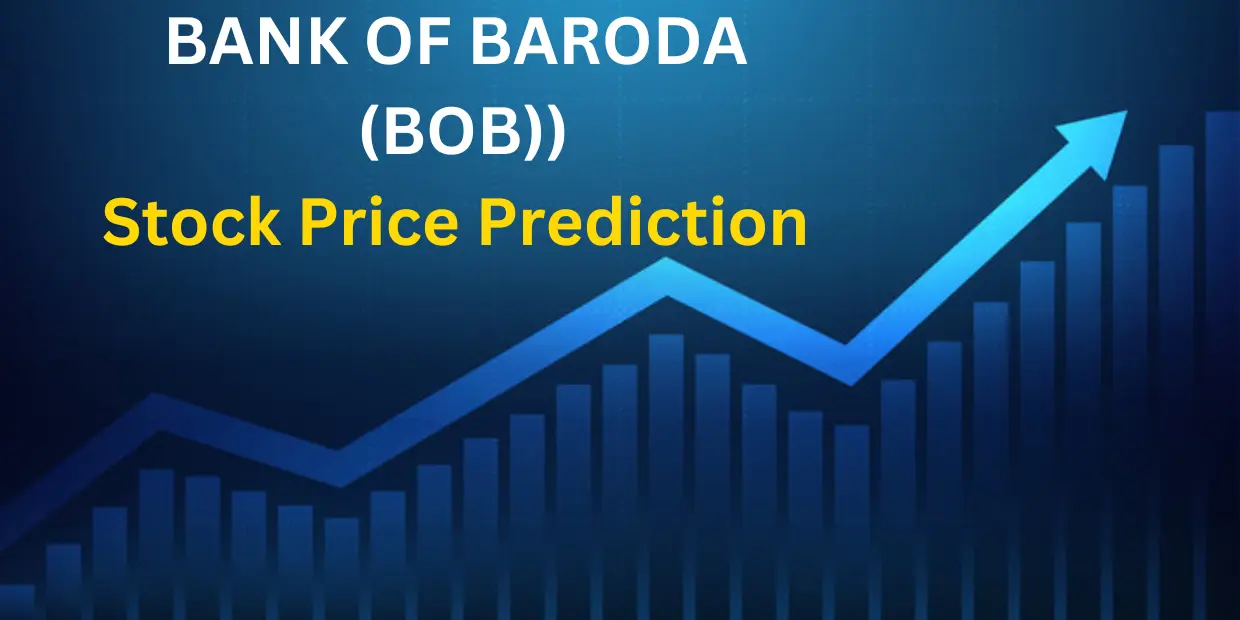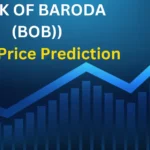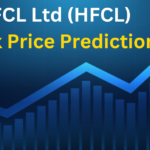Established in 1908 and headquartered in Vadodara, India, Bank of Baroda Limited is a leading financial institution offering a wide range of services to customers worldwide. With four key segments, including Retail Banking and Corporate/Wholesale Banking, it caters to diverse needs. Overall, main purpose of this article is to provide you an information about Bank of Baroda Share Price Target 2024, 2025, 2028 to 2030.
From savings and current accounts to a variety of loans and insurance options, the bank provides comprehensive financial solutions. Boasting a rich history and a commitment to excellence, Bank of Baroda Limited remains a trusted name in the industry.
Bank of Baroda Share Price Target 2024
| Months | Target Prices |
| January | 262.29 |
| February | 266.09 |
| March | 262.27 |
| April | 257.37 |
| May | 263.49 |
| June | 263.47 |
| July | 263.51 |
| August | 307.36 |
| September | 307.35 |
| October | 307.35 |
| November | 307.36 |
| December | 307.42 |
Bank of Baroda Share Price Target 2025
| Months | Target Prices |
| January | 326.55 |
| February | 330.33 |
| March | 326.54 |
| April | 324.61 |
| May | 324.62 |
| June | 324.64 |
| July | 324.67 |
| August | 324.7 |
| September | 324.67 |
| October | 324.7 |
| November | 324.67 |
| December | 324.66 |
Also Read:- Ford Stock Price Predicition
Bank of Baroda Share Price Target 2026
| Months | Target Prices |
| January | 350.59 |
| February | 354.39 |
| March | 350.59 |
| April | 348.66 |
| May | 348.68 |
| June | 348.66 |
| July | 348.67 |
| August | 348.66 |
| September | 348.64 |
| October | 348.61 |
| November | 348.6 |
| December | 348.6 |
Bank of Baroda Share Price Target 2027
| Months | Target Prices |
| January | 375.86 |
| February | 379.65 |
| March | 375.84 |
| April | 373.92 |
| May | 373.95 |
| June | 373.96 |
| July | 373.99 |
| August | 374.02 |
| September | 373.96 |
| October | 373.99 |
| November | 374.02 |
| December | 374.00 |
Bank of Baroda Share Price Target 2028
| Months | Target Prices |
| January | 402.39 |
| February | 406.22 |
| March | 402.39 |
| April | 400.52 |
| May | 400.53 |
| June | 400.51 |
| July | 400.53 |
| August | 400.54 |
| September | 400.57 |
| October | 400.60 |
| November | 400.61 |
| December | 400.62 |
Bank of Baroda Share Price Target 2029
| Months | Target Prices |
| January | 430.3 |
| February | 434.08 |
| March | 430.29 |
| April | 428.37 |
| May | 428.37 |
| June | 428.41 |
| July | 428.38 |
| August | 428.36 |
| September | 428.34 |
| October | 428.35 |
| November | 428.34 |
| December | 428.38 |
Bank of Baroda Share Price Target 2030
| Months | Target Prices |
| January | 459.52 |
| February | 463.35 |
| March | 459.58 |
| April | 457.67 |
| May | 457.70 |
| June | 457.73 |
| July | 457.70 |
| August | 457.70 |
| September | 457.71 |
| October | 457.68 |
| November | 457.64 |
| December | 457.63 |
Bank of Baroda Shareholding Pattern
Shareholding Pattern of Bank Of Baroda
| Shareholders | Share Percentage |
| Promoters | 64% |
| Foreign Institutional Investors (FII) | 12.3% |
| Mutual Funds | 8.6% |
| Other Institutions | 28.3% |
Bank Of Baroda Financials
Financial Performance of Bank of Baroda
| Metrics | Value |
| Market Capitalization Value | ₹143,454 crores |
| Total Revenue | ₹111,576 crores |
| Total Share Capital | ₹1,035.53 crores |
| Total Deposits | ₹1,203,687.73 crores |
| Total Borrowings | ₹101,910.98 crores |
| Total Investments | ₹362,389.42 crores |
| Total Assets | ₹1,458,561.55 crores |
| Total Contingent liabilities | ₹577,753.6 crores |
| Capital Adequacy Ratio | 16.24% |
| PE Ratio | 9.58% |
| Debt to Equity Ratio | 1.03% |
| Earnings Per Share (EPS) | ₹27.28 crores |
| Book Value | ₹189.70 crores |
| Return on Capital Employed (ROCE) | 1.91% |
| Return on Equity (ROE) | 14.36% |
| Asset Turnover Ratio | 0.96% |
Bank of Baroda Competitors
- Axis Bank
- Bandhan Bank
- State Bank of India
- HDFC Bank
- ICICI Bank
Also Read:- BEL Share Price Target 2024, 2025, 2028 to 2030
Conclusion
Bank of Baroda, a prominent player in the banking sector, is listed on the stock exchange, offering financial services to its clientele. While its performance on the exchange is steady, it lacks the robust reputation that drives high demand for its shares. Typically, demand remains stable or experiences marginal declines, with occasional upticks. Nonetheless, the company continues to generate significant profits from its sales and revenue, reflecting its solid performance in the stock market. Looking ahead, predictions suggest a gradual growth trajectory for its share prices, fueled by anticipated increases in demand over time.
Is Bank of Baroda stock suitable for long-term investment?
Yes, Bank of Baroda stock can be a good option for long-term investment, especially for investors seeking stability and potential growth in the banking sector.
What factors make Bank of Baroda stock attractive for long-term investors?
Bank of Baroda is a well-established bank with a long history and a strong presence in the Indian banking industry. Its diversified range of financial services, consistent profitability, and potential for future growth make it appealing for long-term investors.
How has Bank of Baroda performed historically for long-term investors?
Historically, Bank of Baroda has shown resilience and has rewarded long-term investors with steady returns over time. While there may be fluctuations in the short term, its performance over the long term has been relatively stable.
What are some risks associated with long-term investment in Bank of Baroda stock?
Like any investment, Bank of Baroda stock carries certain risks, including market fluctuations, regulatory changes, economic downturns, and specific risks associated with the banking industry. Investors should be aware of these risks and consider them in their investment strategy.
How would you describe Bank of Baroda’s presence in the stock market?
Bank of Baroda is a notable entity in the stock market, primarily operating within the banking sector and offering a range of financial services to its customers.
What does the Price-to-Book (P/B) ratio reveal about Bank of Baroda’s stock?
Bank of Baroda’s P/B ratio compares its market price per share to its book value per share, indicating whether the stock is trading at a premium or discount to its intrinsic value.
What are some key market ratios used to assess Bank of Baroda’s stock?
Some key market ratios for evaluating Bank of Baroda’s stock include the Price-to-Earnings (P/E) ratio, Price-to-Book (P/B) ratio, Return on Equity (ROE), and Debt-to-Equity (D/E) ratio, among others.








